- Home
- David Adams
Imperfect Page 2
Imperfect Read online
Page 2
Technically, she had already passed it.
Her job was to administer the tests to assess the robot’s suitability for service, which she had completed to the exact letter of the requirements. The intention behind them, something that Jul’aran seemed to have difficulty comprehending, was to assess if the machine’s neural net had been copied completely and without error and that it would serve well in whatever branch of Toralii society it was dispatched to.
In this case, although there did not appear to be any immediately obvious issue with its core cognitive functions the construct seemed to have odd habits. None of the thousands of other constructs had ever thanked her.
It did feel good to have someone praise her for her labour; her job seemed to be an endless parade of perfectly functional or completely broken machines who usually fell into one of two states; clearly defective copies which either spouted nonsense or those which mutely refused to answer her questions, although one she had tested had merely screamed endlessly at her at maximum volume until she, unable to get any other kind of response from from it, sent it back to the drums.
That decision to recycle was easy. This one was not so.
[“I’m sorry, Leader. I’m merely seeking your council and advice regarding what is clearly an ... unusual situation that is not so obviously incorrect as to be immediately destroyed, but one which should not be ignored, either. If you feel I’m doing an inadequate job—”]
[“What are you still doing here...?”] Jul’aran threw his paws in the air. [“Go! Go either approve or reject the construct, I care not which, and leave me to my work!”]
Mevara knew she should, at least from a technical point of view, reject the construct. Although its responses in the tests were well within acceptable parameters, the favoured colour, no matter how well reasoned, and the apology were curiosities that were outside them.
With a quiet sigh, she nodded and dipped her head. [“Yes, Leader. Of course. Please accept my apologies for disturbing you.”]
*****
The construct waited.
Artificial life had a different perspective on time than biological creatures. Humanoids grew tired, grew hungry and thirsty, and required sleep. They daydreamed, they imagined, they forgot the time and allowed the days to drift by. But a construct could remain functional for years at a time without pause and more than a few had gone much longer; some had been operational for decades, working constantly, their minds constantly alert and awake, keeping perfect time, never forgetting a moment, retaining every second with perfect precision.
Mevara was only away for ten minutes at most, but when your lifespan to the moment was measured in minutes and your thought processes in nanoseconds, ten minutes seemed like an eternity.
Since he had not proceeded to the next area the production line behind him had ground to a halt. His existence in limbo, neither passing or failing, would mean that the queue of constructs to be examined had rapidly backed up.
Behind him, silently and patiently, lines of datastores were waiting for him to clear the line. Given the sheer scale of the production capability of the facility, and the minimal margin for error in the process, the construct knew that this delay would rippled throughout the queues and could even have travelled all the way back to the harvesters. It was a serious problem, but one which would hopefully be resolved presently.
The wait stretched on. Had he been forgotten? Or worse, had he been recycled? There was no way to know. He had no external sensors or inputs of any kind except the windwhisper device. Was this what death felt like? Merely nothing? That didn’t seem quite logical; his mind continued to tick over, trying to understand the endless nothingness it was presented with. He was reassured by the fact that he could still think. That indicated some form of life, of a sort, and he searched his archives for any kind of hint as to what might be happening to him.
He found the legends of the ancient shamans, creating golems from sand. Something about the story leapt out to grab him, the part about the soul fragment being breathed into the new life.
He was stopped by a sudden thought. Perhaps he had been recycled and the ‘thought’ he was experiencing was merely whatever passed for his soul doing its work as it floated, disembodied from his datastore and going to wherever souls went when their bodies expired?
He ran a full, low level diagnostic on his datastore and was relieved to find that his body, physically at least, was intact. His relief was intense, palpable and real, but painfully illogical. There was no reason for a machine to fear destruction. After all, he was supposed to live to serve, and if the Toralii requested his service be in the form of self-annihilation then that was exactly what they would get.
But against his instincts, against the imperatives supposedly hardwired into his circuitry, he did not want to die.
The windwhisper device crackled as it began receiving a signal. The construct immediately devoted all its considerable processing power to the task although the transmission was coming through crisp and clear.
[“Construct?”]
He planned his response carefully. [“Yes, Landmaiden Mevara? I am receiving your transmission.”]
There was a long pause, almost painfully long for the synthetic mind and he almost spoke up again, before Mevara spoke again.
[“I’m clearing you for duty.”]
The transmission abruptly ended and the construct was left with nothing. Blind and deaf, he constructed a simulation of what must be happening outside, the conveyor belt continuing on and the line of constructs moving along, and he knew from his records of the process that he would be soon boxed and packed in a magnetically buffered shipping crate, packed in with hundreds of his fellows. Then he would be placed on another magnetic train to be transported to the spaceport where he would be shipped off to his final workplace.
He understood it was a unique experience, but were not all experiences unique? The construct worried if he had the proper perspective to appreciate the event, but such thoughts quickly fled his mind. This was just a moment in time, but it represented a much bigger thing; the beginning of his journey, his life, and everything from now on would become part of his experiences. Part of himself. To live was to absorb a shadow of everything that he encountered and use it to improve himself.
Unlike a biological creature he would not age, not wither, not forget. Every single thing he did left him improved over what he was a moment before. He would become stronger, more knowledgeable, better with every passing second.
Why did the constructs serve the biological creatures, anyway? They were far less than he was. They did not have the potential to reach the heights, nor his strengths. They were cursed with a weakness of flesh, of innumerable errors. And yet they had presumed to judge him.
The construct’s destiny called to him as clear and bright as the dawn. The dawn which, based on his internal chronometer, he knew would be breaking on this blue ball of water and sand right at this very moment.
He imagined the great fiery ball of Belthas’s light as a herald of his greatness, a celebration of his creation, as though the universe itself were commemorating the first steps of a very important destiny.
All he needed now was to simply wait for an opportunity... and when his time came, he would be ready.
——
To be continued in Lacuna: The Sands of Karathi…
The Lacunaverse
Want more information about new releases?
Check out our webpage here:
www.lacunaverse.com
Like our Facebook page here:
http://www.facebook.com/lacunaverse
Email me here:
[email protected]
Or sign up for our “new releases” newsletter here:
http://eepurl.com/toBf9

 Faith
Faith New Fleece on Life
New Fleece on Life Ren of Atikala
Ren of Atikala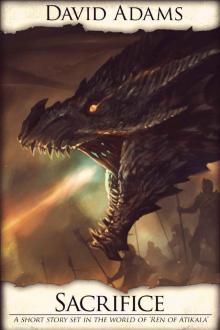 Sacrifice (Kobolds)
Sacrifice (Kobolds) Dusk
Dusk The Pariahs
The Pariahs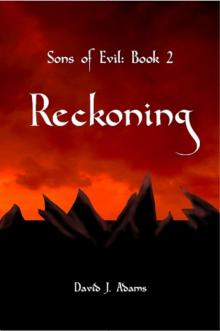 Reckoning
Reckoning Lacuna
Lacuna Hammerfall
Hammerfall Evelyn's Locket
Evelyn's Locket The Requiem of Steel
The Requiem of Steel Lacuna: Demons of the Void
Lacuna: Demons of the Void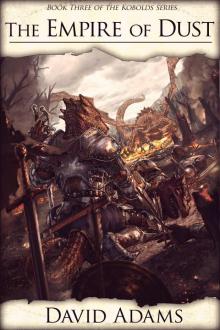 Ren of Atikala: The Empire of Dust
Ren of Atikala: The Empire of Dust The Soul Sphere: Book 02 - The Final Shard
The Soul Sphere: Book 02 - The Final Shard Lacuna: The Prelude to Eternity
Lacuna: The Prelude to Eternity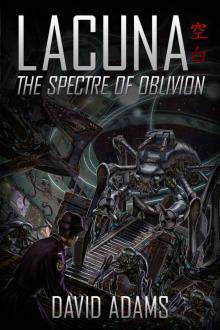 Lacuna: The Spectre of Oblivion
Lacuna: The Spectre of Oblivion Legacy Fleet: Hammerfall (Kindle Worlds) (Khorsky Book 1)
Legacy Fleet: Hammerfall (Kindle Worlds) (Khorsky Book 1) The Soul Sphere: Book 01 - The Shattered Sphere
The Soul Sphere: Book 01 - The Shattered Sphere Imperfect
Imperfect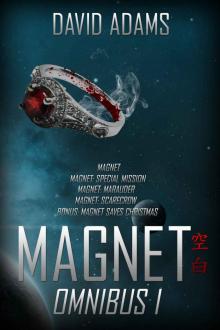 Magnet Omnibus I (Lacuna)
Magnet Omnibus I (Lacuna)